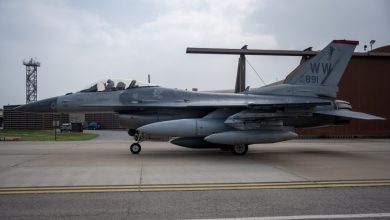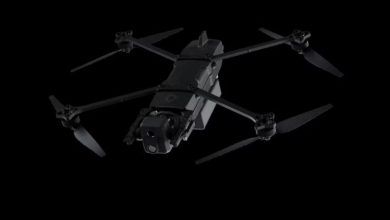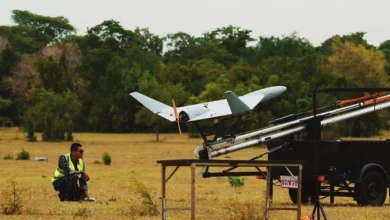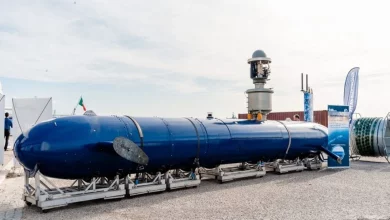Canada reportedly unfreezes Türkiye talks on defense export controls
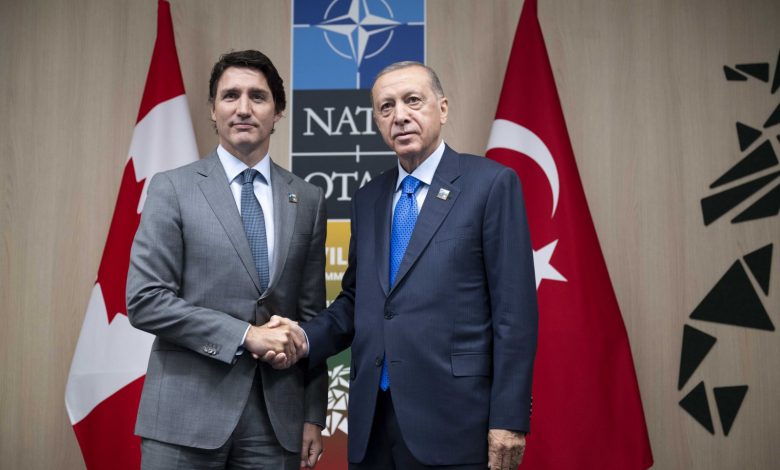
Canada has decided to resume talks with Türkiye on lifting export controls on drone parts after Ankara agreed to support Sweden’s bid to join NATO, a person familiar with the talks said, a move seen as one of several concessions won in exchange for the Turkish blessing.
President Recep Tayyip Erdoğan’s greenlight ended more than a year of opposition to Sweden’s membership bid. Ankara held out on the ratification, accusing Sweden of doing too little against terrorist organizations such as the PKK, its affiliates, and the Gülenist Terror Group (FETÖ), the group behind the 2016 defeated coup in Türkiye.
Erdoğan’s decision, announced ahead of a North Atlantic Treaty Organization summit in Vilnius, was followed quickly by a statement from Washington that the United States would move ahead with a transfer of F-16 fighter jets in consultation with Congress.
In a potentially significant move for Türkiye’s defense industry, NATO member Canada agreed to reopen talks on lifting export controls on drone parts including optical equipment, the person familiar with the talks told Reuters, declining to be identified because they were not authorized to discuss details with media.
Canada suspended the export of some drone technology to Türkiye in 2020 after concluding the equipment had been used by Azerbaijan’s forces during the war in the Armenian-occupied Karabakh region.
Those export controls, which “were imposed for important reasons,” remain in place, Canadian Prime Minister Justin Trudeau’s office said in a statement.
“The Prime Minister discussed Sweden’s accession to NATO with our partners in Vilnius, including with President Erdogan,” the statement said.
“Canada remains committed to the principle that there should be no restrictions, barriers or sanctions to defense trade and investments among allies.”
The curbs prompted Turkish defense companies to produce the embargoed parts themselves. The famed Bayraktar TB2 unmanned combat aerial vehicles (UCAVs) have been recently equipped with a domestically made Common Aperture Targeting System (CATS), developed by the pioneering defense manufacturer Aselsan to replace Canadian-made ones.
Ahead of the NATO summit, Türkiye, already seeking assurances over the F-16s in talks with Washington, asked that Canada’s export controls also be rolled into the final discussion, the person familiar with the talks said.
Türkiye sought “a package deal,” the person said.
Canada agreed to reopen talks on the matter that had been frozen since Türkiye initially objected to NATO membership bids by both Sweden and Finland last year as long as Ankara pledged to ratify Sweden’s bid at Vilnius, the person said.
At Vilnius, Canada reportedly outlined its position to Türkiye on rules regarding the uses of any exported technologies and was awaiting a response. This means the talks on export controls are no longer frozen, a move that helped play a role in sealing Erdoğan’s pledge over Sweden, the person said.
Asked whether Türkiye was in talks with Canada to lift export curbs, a Turkish Defense Ministry official said it was unacceptable for NATO allies to impose export restrictions on each other and “a certain progress has been made at the Vilnius Summit on that issue.”
“But we will follow the results of the negotiations and decision taken at the Vilnius summit,” the official said.
In an interview with Turkish media published on Thursday, Erdoğan said his country expects all NATO allies to lift sanctions and restrictions on its defense industry.
On Wednesday, Erdoğan said he was “more hopeful than ever” about the sale of the F-16 fighter jets, after meeting with U.S. President Joe Biden a day earlier. Türkiye had requested in October 2021 to buy $20 billion of F-16 fighters and nearly 80 modernization kits for its existing warplanes.
Türkiye has delayed its final approval of Sweden’s membership in NATO, accusing the country of being too lenient toward anti-Islamic demonstrations as well as terrorist entities, particularly the PKK, which is designated a terrorist group by the United States and the European Union.
Sweden and Finland applied for NATO membership last year in response to Russia’s invasion of Ukraine, abandoning policies of military non-alignment that had lasted through the decades of the Cold War.
Türkiye’s Parliament ratified Finland’s membership in March after Erdoğan said Helsinki had taken concrete steps to crack down on terrorist groups, and to free up defense exports.
Erdoğan said on Wednesday he would forward Sweden’s ratification to Parliament when it reopens in October, adding Stockholm would provide a roadmap to Türkiye regarding the steps it would take before the approval.
Devlet Bahçeli, the leader of the Nationalist Movement Party (MHP), Erdoğan’s main ally, said on Tuesday that Sweden had failed to distance itself from terrorism, but added that the president would make the final call about Stockholm’s membership bid.
Eroğan met with Bahçeli on Thursday.
Erdoğan has also said he expects steps from the EU, including updating the Customs Union and visa-free travel, before Türkiye begins “work on implementing the promises (it) has made.”


